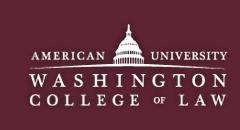Abstract
All judges attempt to decide cases for reasons other than politics or their own personal opinions. But finding a consistent judicial methodology is fraught with peril. Against what it sees as the hyper-textualism of strict constructionism and the unfettered discretion of living constitutionalism, originalism posits itself as the only viable way to achieve an objectively neutral interpretation of the law. This is certainly the stance taken by the majority opinion in Dobbs v. Jackson Women’s Health Organization, which claims that the Constitution is silent on abortion and that therefore no corresponding right to abortion exists. But there can be different forms of originalism. This article introduces principle originalism as an equally objective and superior theory of judicial interpretation to the meaning of originalism advanced by the Dobbs majority. Drawing from the jurisprudence of Ronald Dworkin, principle originalism remains grounded in the Constitution as construed at the time of the Founding, but it interprets that semantic context at a higher level than meaning originalism and then uses legal precedent as a way to explain and justify the gradual evolution of the law. After exploring alternatives to meaning originalism advanced in two prominent cases interpreting Title VII, this article will delineate how principle originalism functions as a theory of jurisprudence. Applying this methodology to Obergefell v. Hodges and the dissent in Dobbs demonstrates principle originalism to be a better alternative to meaning originalism than strict constructionism or living constitutionalism.
Included in
Civil Rights and Discrimination Commons, Law and Gender Commons, Law and Society Commons
